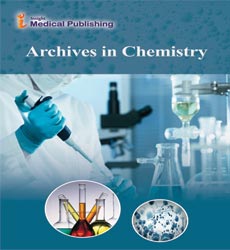Announcement of 15th International Conference on Biofuels & Bioenergy
Abstract
Conference on 15th International Conference on Biofuels and Bioenergy will be hosted in Rome, Italy. A panel of speakers will be delivering their presentations on their recent research related to biofuels and bioenergy. The current state of knowledge, its impact on the future will be discussed in detail. Conference Series invites all experts to be part of this conference and makes it a perfect platform for knowledge sharing and networking. Conference Series would lay a platform for the interaction between experts around the world and aim in accelerating scientific discovery. We believe your presence would be a source of inspiration for upcoming scientists, students, academicians, and business delegates for taking the technological aspects related to this topic to the next level. As per the U.S Energy Information Agency (EIA), global energy consumption will witness a significant hike of 28% by 2040. Depleting natural resources augmenting the scarcity of fossil fuels is signaling a failure to efficiently provide to the energy demand articulated by strong economic growth worldwide. Owing to such inevitable circumstances coupled with increasing carbon footprints, the biofuel market is all set to capitalize on the unfilled energy demand gap by traditional energy resources. Biofuels are derived from plants (i.e. energy crops), or secondarily from anaerobic digestion, agronomic, commercial, domestic, and wastes from industries. It has found a tremendous scope of application in the transportation and energy sector. The analyst in this research report has stated the global biofuel market size was around $130 billion as of 2018. As a consequence, the biofuel market is progressing at a global CAGR of around 4% during the forecast period 2019-2025. The transportation sector is the major consumer of fuels, EIA has stated that in 2021, of the approximately 7.3 billion barrels of total U.S. petroleum intake, 47% was motor gasoline, 20% was distillate fuel and 8% was jet fuel.
Open Access Journals
- Aquaculture & Veterinary Science
- Chemistry & Chemical Sciences
- Clinical Sciences
- Engineering
- General Science
- Genetics & Molecular Biology
- Health Care & Nursing
- Immunology & Microbiology
- Materials Science
- Mathematics & Physics
- Medical Sciences
- Neurology & Psychiatry
- Oncology & Cancer Science
- Pharmaceutical Sciences
